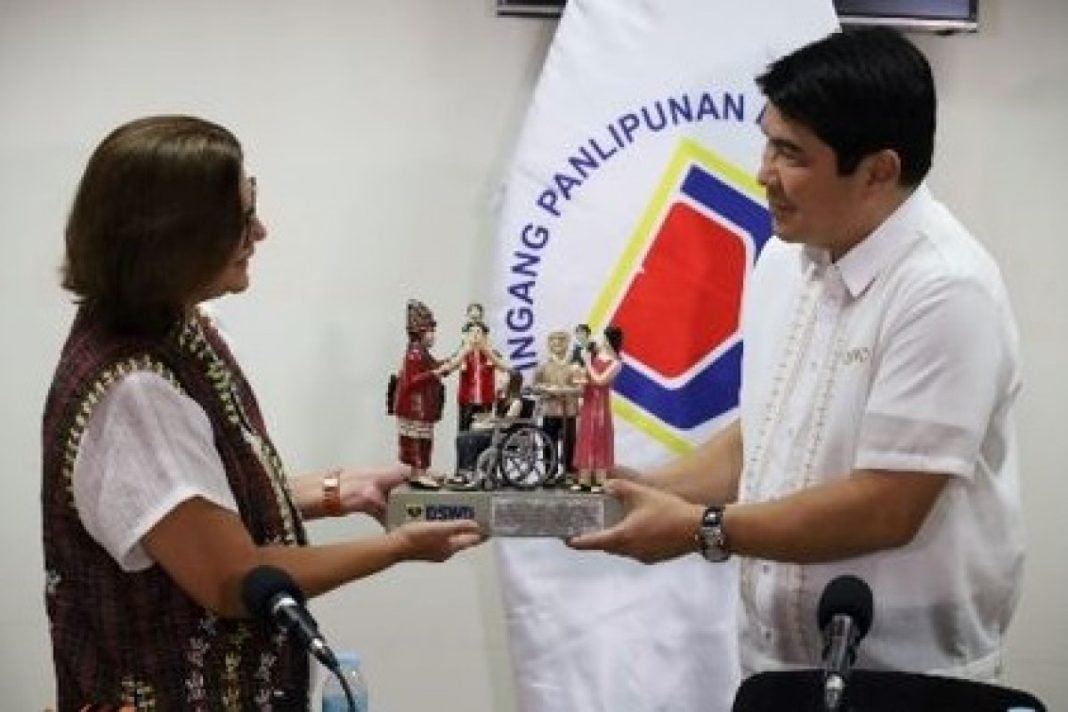Manila, 8 September 2022 (TDI): The United Nations Population Fund (UNFPA) collaborates with the Department of Social Welfare and Development (DSWD) for Filipino women’s safety. The collaboration will help achieve the goal of 3 zeroes for Filipino women and end gender-based violence in the Philippines.
Within this framework, the Country Representative of UNFPA, Leila Joudane met the DSWD Secretary, Erwin T. Tulfo. During their meeting, both sides highlighted the importance of social welfare and the protection of rights in the Philippines.
Today @leilajou UNFPA Country Rep and team had a fruitful courtesy meeting with @dswdserves Secretary Tulfo. We are grateful of our collaboration with DSWD to advance the #3Zeroes for the Filipino women and girls. Mabuhay po kayo! https://t.co/vqrttjh8wo
— UNFPA Philippines (@UNFPAph) September 7, 2022
Collaboration between UNFPA and DSWD
During the meeting, Secretary Tulfo expressed his gratitude to the UNFPA for its significant contributions to the achievement of the mandate of DSWD in promoting the rights of women.
He said that with the help of UNFPA, more Filipino women can be protected and helped in the future.
Consequently, Representative Leila also reaffirmed her commitment to the joint efforts of DSWD and UNFPA in preventing and responding to gender-based violence (GBV).
She also highlighted the strong partnership between the two agencies in disaster response, ensuring no one is left behind in times of emergencies.
It is noteworthy that DSWD has previously collaborated with the UNFPA in strengthening GBV prevention and response systems.
Additionally, the ongoing collaborations include capacity-building initiatives for social workers on GBV case management and GBV prevention. It also covers other activities to prevent GBV and other harmful practices, including child marriage.
Moreover, the Secretary shared that one of the notable partnerships between DSWD and the international agency was on improving the beneficiaries’ knowledge and attitude toward mental health care, family planning, and maternal care.
Concluding the meeting, the DSWD and UNFPA vowed to work together toward advancing women’s economic empowerment. Moreover, they also affirmed collaboration for the achievement of the 3 zeroes goal by 2030.
3 zeroes goal
UNFPA aims to achieve three zeros by 2030 which include zero unmet need for contraception, zero preventable maternal deaths, and zero violence or harmful practices against women.
It also aims to achieve the 2030 Agenda for Sustainable principles concerning universal sexual and reproductive health rights by 2030.
UNFPA aims to strengthen national policies and programs to enable women and young people, to be gender-responsive, and to have affordable SRH services.
These services address health and wellbeing, including sexual and reproductive health (SRH) rights for women.
It also promotes positive social norms to support the realization of gender equality and women’s rights. Furthermore, UNFPA enhances the inclusion of population issues in policy-making.
This helps in establishing a better response to low fertility and population aging by employing a rights-based life-cycle approach.
UNFPA works in the Philippines for women
Since 1970, UNFPA has backed national objectives to achieve universal access to sexual and reproductive health care, and reduce maternal deaths. Though maternal mortality is slowly decreasing, the unmet need for family planning has edged up.
UNFPA has also supported health systems to deliver core services to women and their newborn infants. It partners with government agencies on using effective data to guide policy-making. It also collaborates with civil society organizations to advocate for reproductive rights.
women of reproductive age (aged 15-49) with SRH services. Furthermore, every woman has utilized integrated sexual and reproductive health services and exercised reproductive rights free of coercion, discrimination, and violence under UNFPA.
Additionally, UNFPA has also empowered girls to have access to reproductive health and sexual rights, in all contexts.








